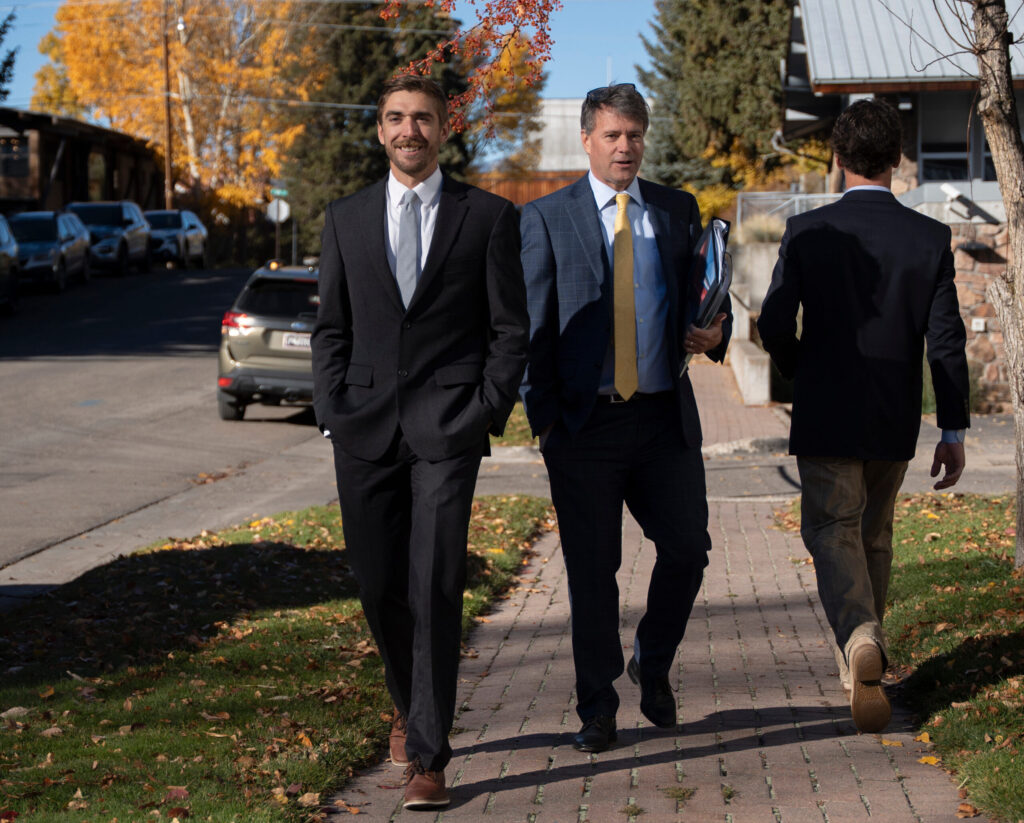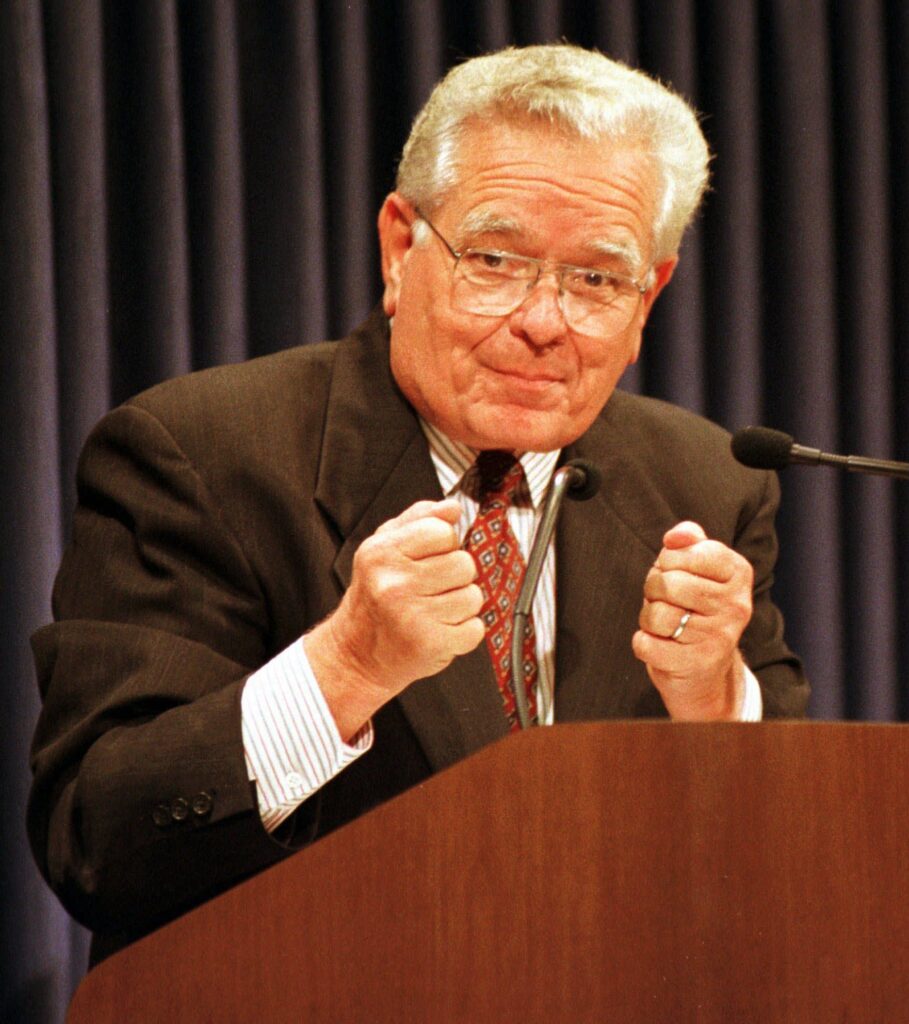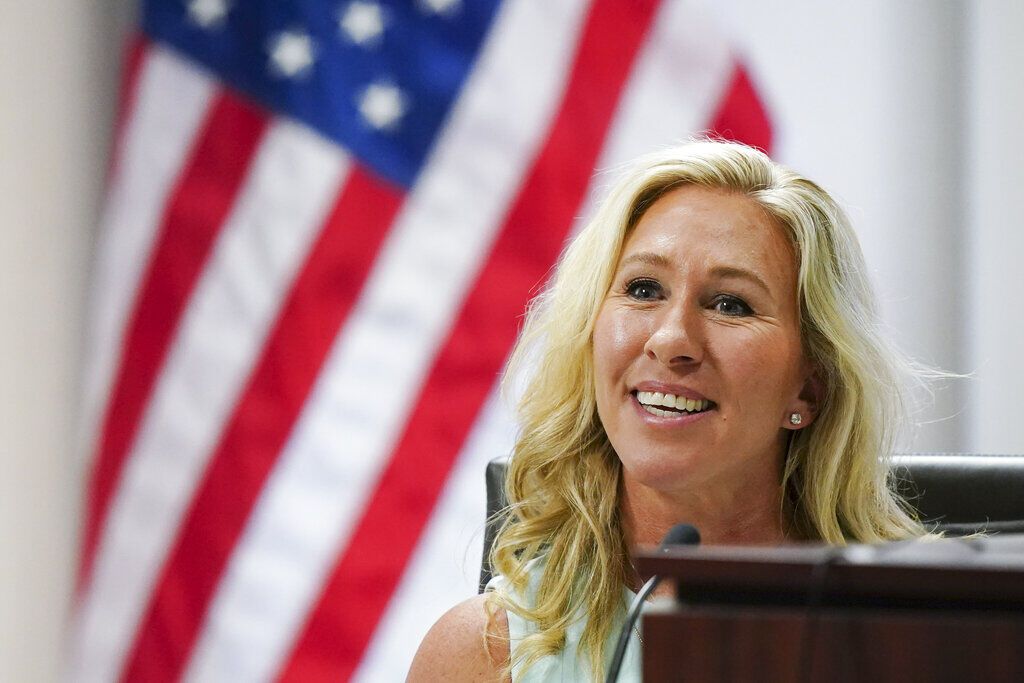Denver court dismisses Douglas County’s lawsuit over Colorado’s ‘sanctuary’ laws
A Denver district court has dismissed a lawsuit that Douglas County filed against the state of Colorado over its “sanctuary” statutes that restrict local law enforcement officials from working with federal authorities on illegal immigration, according to the county’s lawyer.
The lawsuit targeted a 2023 law that restricts the ability of state and local governments from making agreements with federal immigration officials over the detention of immigrants who are unlawfully staying in the country, as well as a 2019 statute that blocks local law enforcers from arresting or detaining an immigrant solely on the basis of a federal immigration detainer.
Current Colorado laws also prevent state judicial officials from sharing information with federal immigration officials.
“We knew this was coming all along,” Douglas County Attorney Jeff Garcia said of the case’s dismissal.
“This was not a surprise to us. This is something that is happening across the United states, and this is just one case and example,” he said. “Our best chance is with the federal court.”
No legal definition of a “sanctuary” city or state exists, but, broadly speaking, it refers to a community that expressly refuses to cooperate with federal authorities on enforcing immigration laws.
The lawsuit argued Colorado’s laws are “illegal and unconstitutional” because they violate the Colorado Constitution’s provisions on intergovernmental relationships and distribution of powers. They are also preempted by federal immigration laws and regulations, the lawsuit added.
In pushing for the 2019 law, sponsors said any requirement that public safety agencies “play a role in enforcing federal civil immigration laws can undermine public trust.” Sponsors also said Coloradans have “constitutional rights to due process and protection against unlawful detainment and seizures.”
And in passing the 2023 law, lawmakers said it is an “inappropriate exercise of a state’s police powers to detain individuals for federal immigration purposes given its implication on foreign relations.” Lawmakers also declared that “phasing out” state and local officials’ involvement in civil immigration detention is warranted.
Roughly 43,000 immigrants have arrived in Denver after illegally crossing America’s southern border over the past two years or so. City officials in Denver do not know exactly how many have remained here.
Early in the crisis, state and local officials had estimated that 70% intended to resettle elsewhere in the United States. But bus, plane and train tickets purchased for immigrants traveling elsewhere suggest that fewer than half have left.
Douglas County — and several other jurisdictions — have distanced themselves from Denver, which also has adopted “sanctuary” laws.
Aurora passed a resolution in February affirming the city’s “non-sanctuary” status, asserting it “does not currently have the financial capacity to fund new services related to this crisis.” The resolution also demanded that nonprofits and municipalities should coordinate with Aurora’s officials before bringing immigrants into the city.
In Colorado Springs, the council approved a largely symbolic resolution that reaffirmed it is not a sanctuary city in the hopes of discouraging immigrants from heading south from Denver. Colorado Springs City Council President Randy Helms said he believes — as officials at the southern border do — that being “welcoming” has led to the immigrant influx.
A few weeks ago, the Castle Rock Town Council approved a motion to explore a lawsuit against Denver over its immigration policies.
Metro Denver has been at the center of an influx of immigration for the past two years, starting when a busload of immigrants were dropped off downtown to wander in the cold.
Denver Mayor Mike Johnston has defended his city’s response to the influx of immigrants.
Last month, he said he is mulling over “options” to protect the immigrants unlawfully staying in America. His office did not answer further questions, such as what “options” the mayor has in mind.
In an interview with Denver Gazette news partner 9News, Johnston said he would protest himself to resist Trump’s deportation plans and that he is “not afraid” of jail time, though he added he is also “not seeking it.”
In that 9News interview, Johnston sought to situate his position with that of former Colorado Gov. Ralph Carr, who is historically notable for his criticism of the Roosevelt administration’s detention of Japanese Americans during World War II. Southeastern Colorado was the site of an internment camp.
Johnston also drew parallels to Tiananmen Square in an interview with Denverite, suggesting residents would rise up, alongside Denver police, to resist a mass deportation campaign.
Reporter Nico Brambila and Editor Luige del Puerto contributed to this article.










